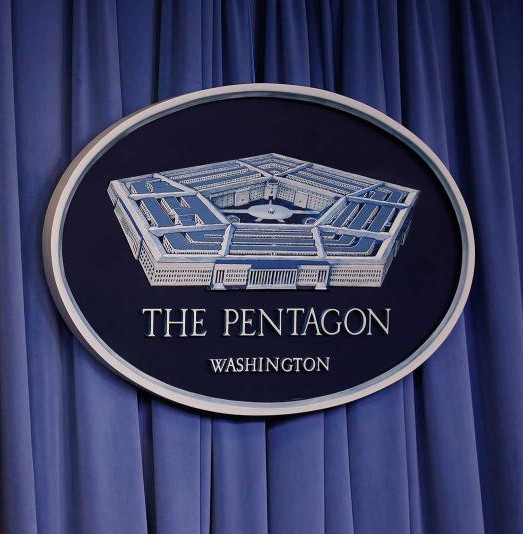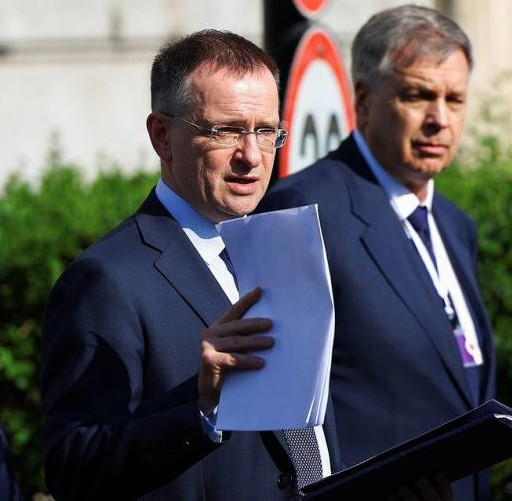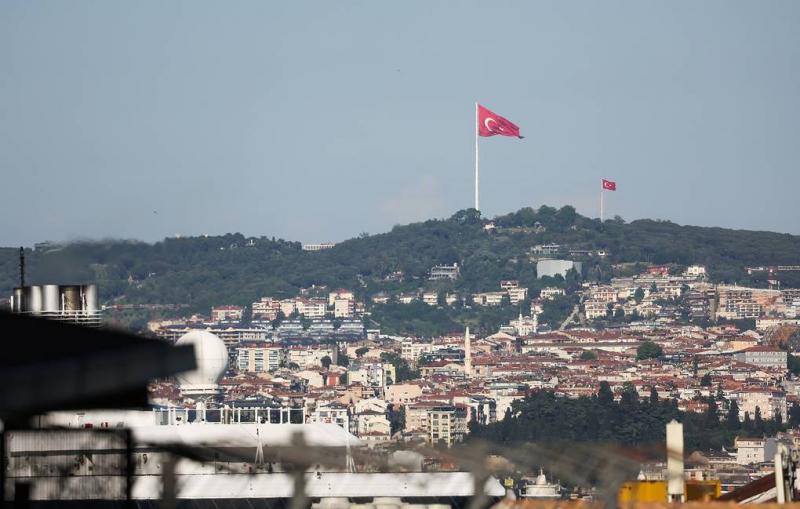Tragic railway incidents occur in Russia, Moscow and Kiev confirm participation in a new round of talks in Istanbul, and OPEC+ maintains accelerated oil output growth. These stories topped Monday's headlines across Russia, according to TASS news agency.
Izvestia: Ukraine, West’s response to tragic incidents in Russia
Over the past day, railway emergencies occurred in two Russian regions at once with fatalities among passengers and dozens of people injured and taken to hospitals. However, the Western media is again ignoring the tragic events in Russia or even implicitly supporting them. That said, some US media outlets noted the activity of Ukrainian special services which previously eagerly took on responsibility for such actions. Another major issue is that these incidents occurred on the eve of the second round of direct talks between Russia and Ukraine. The Russian Foreign Ministry has already noted the Kiev regime’s morbid and gloating reaction to the tragedies. Experts polled by Izvestia do not rule out that this may alter the tonality of the upcoming dialogue.
As for the reaction of European political circles, no reconsideration of the events is seen, analyst Tigran Meloyan from the HSE Mediterranean Studies Center told Izvestia. As opposed to the US where the idea of strategically defeating Russia is gradually becoming less popular, in Europe, any attacks or emergencies in Russia are not being condemned but are rather perceived as acceptable, which, according to the expert, reflects the current policy course toward the utmost pressure on Russia.
Political scientist Denis Denisov is linking the silent approval of tragic events on Russian soil by Western countries and media outlets with the consistent double-standard policy. According to him, since 2014, any tragedy, including events in Donbass and during the special military operation have been either ignored or justified by the West. The "victim" and the "perpetrator" have been designated in advance, and, following this logic, the blame is always pinned on Russia.
"This policy course will be followed in the future as well, which means that any agreements with Ukraine must be strictly enshrined legally and accompanied by real, not symbolic, guarantees," the expert told Izvestia.
According to Ivan Loshkarev, Associate Professor of the Department of Political Theory at MGIMO University, the silence of foreign politicians and media in response to events in Russia is explainable.
"The West often deliberately ignores both incidents concerning Russian infrastructure and casualties among civilians in Russia because this disrupts their established narrative featuring Ukraine as the sole victim," the political scientist told the newspaper.
Media: Russia, Ukraine confirm participation in new round of negotiations in Istanbul
Moscow and Kiev are preparing for the second round of talks in Istanbul, proposing mutual initiatives while the actual prospects of de-escalation remain uncertain. Simultaneously with terrorist attacks on Russian airfields, Ukraine submitted to the media some "settlement plan" with patently unrealistic terms. Kiev attempted to demand a similar document from Moscow but was quickly informed that all Russian terms will be articulated to Ukrainian negotiators at the June 2 meeting.
The main agenda of the talks between the Russian and Ukrainian delegations in Istanbul will be the submission and consideration of the written memoranda of the sides’ positions and an attempt to develop some common ground, Nikolay Silayev, senior researcher at Moscow State Institute of International Relations, told Vedomosti. The expert did not rule out the discussion of humanitarian issues at the upcoming meeting in Turkey.
"Moscow agreeing to send the text of its memorandum to the Ukrainian side before the face-to-face meeting of the delegations in Turkey would have patently placed Russia in the weaker spot," analyst Tigran Meloyan from the HSE Mediterranean Studies Center explained to Izvestia. "This would have made it look as if Moscow is sending a text for Kiev’s approval while it would determine whether it makes sense to meet on Monday or send the document back for amendments. This dilutes the effect of making the Ukrainian delegation face the facts which is normally done with the losing side," the expert added.
Against this background, the Russian side continued to promote its strategic course. On May 22, President Vladimir Putin announced the creation of a "buffer zone" to ensure security of borderline regions, emphasizing that currently this task is being resolved by the armed forces.
"The creation of a buffer zone is one of the main guarantees of the stable situation in bordering territories. We see what’s going on today in the Belgorod and Kursk regions. These days, Ukraine is simply massively using drones, and for strikes on civilians at that," Rodion Miroshnik, the Russian Foreign Ministry’s ambassador-at-large in charge of overseeing the Kiev regime’s crimes, told Izvestia.
First Deputy Chairman of the Russian Federation Council’s Committee on International Affairs Vladimir Dzhabarov in a commentary for Izvestia questioned the Ukrainian side’s readiness for a productive dialogue.
"There are concerns that Kiev could derail the talks or put forward clearly unacceptable terms. Still, I believe dialogue will move forward, as the West continues to steer Ukraine toward negotiations, and we remain open to talks. The key issue is that without steps to curb Western military support for Ukraine, this conflict could drag on for a long time," the senator told Izvestia.
Kommersant: OPEC+ continues boost in oil output for third consecutive month
A decision by OPEC+ to continue boosted production in July indicates the group’s resolve to return 2.5 million barrels per day to the market by September 2026, analysts believe. This move for a third month in a row was not unexpected for the market and is unlikely to significantly impact prices. OPEC+ high production rates are also anticipated in August amid seasonal demand but may be revised as early as September.
Kirill Bakhtin, senior analyst at BCS World of Investment, said that, given decisions made twice on the accelerated monthly OPEC+ production growth, the market expected the high probability of this move being repeated. Therefore, analysts of companies in the industry do not anticipate any sharp negative reaction in oil prices. OPEC+, which earlier lost a share of the market due to reduced production, is hastily implementing the strategy of returning 2.5 million barrels per day to the market by September 2026, Bakhtin noted.
Lecturer at the Financial University under the Russian Government Igor Yushkov believes that OPEC+ began to fight for the market because many participants may have been displeased that the alliance is lowering production volumes, pushing the prices up while other countries, for example, the US, are taking advantage of the situation. Apparently, the organization decided to completely reject any voluntary restrictions as early as this year, the Price Index Center said.
Bakhtin noted that, given the accelerated production recovery by OPEC+, Russia has the potential to maintain oil production in 2025 at 2024 level (516 million tons). Yet so far, given the high baseline of last year’s first half, the analyst anticipated the production declining by 1% year-on-year.
Izvestia: Sanctions against Russia hinder investigation of crimes in EU
Russia has identified channels for fighting financial crimes despite difficulties with working with Western financial intelligence amid sanctions, Yury Chikhanchin, head of Russia’s Federal Financial Monitoring Service (Rosfinmonitoring), told Izvestia. Moscow is conducting a large number of operations with CSTO countries. That said, financial intelligence services of a number of European countries still reject cooperation with Russia for political reasons, the agency noted. This negatively impacts the investigation of international financial crimes and harms the safety of their own population, the service believes.
Despite Rosfinmonitoring's repeated requests and proposals to share information and bring to justice those responsible, the European colleagues have refused to cooperate and the situation remains complicated to this moment.
"Certainly, we are concerned because frequently, even in those cases when precisely the citizens of European countries are the victims, and there are thousands of them, still, apparently, for political reasons, the agencies of these countries do not wish to interact. They are not earning their keep from taxpayers, so to say, harming, above all, the financial security of their countries, their citizens. Those are European countries. The situation has not changed in any meaningful way," Rosfinmonitoring's deputy head German Neglyad told the newspaper.
This is precisely why hundreds of thousands of Russian citizens are being attacked by phone scammers who feel themselves safe and secure in European countries, Ilya Vasilchuk, lawyer and public activist told Izvestia. As head of the Executive Committee of the All-Russia People’s Front Mikhail Kuznetsov said in March, almost 90% of Russians have encountered phone scammers while about 10 million Russians fell prey to them, losing money, even though the majority of attempts were prevented.
So far, it is obvious that the situation is getting worse and no noticeable improvements should be expected without any radical changes in global politics, Vasilchuk concluded. The current dynamics is indicative of the low level of trust and mutual respect between the sides which will trigger adverse long-term consequences, he believes.
Nezavisimaya Gazeta: US AI to reshape views of Russian officials
In 10 years, the market of artificial intelligence (AI) technologies in Russia may grow to $55 billion with the optimistic scenario, researchers from the Institute of Economic Forecasting of the Russian Academy of Sciences (IEF RAS) forecast. For comparison, the same market in China has already reached almost $90 billion. The development of AI in Russia directly depends on state support and the use of AI programs by the Trump administration, Russian scientists believe.
"The Russian AI market is still relatively young even though it demonstrates rapid growth. Analysts and relevant associations anticipate that, given the current dynamics, the turnover may surpass one trillion by 2030, that is, the market will grow by double-digits every year," Mikhail Spitsyn, a cyber expert and analytical engineer at the Gazinformservice Strategic Development Laboratory noted.
Tatyana Butorina of Gazinformservice points out certain limiting factors, such as problems with supplies of modern equipment due to sanctions and the lack of processing capacities. "There is still an outflow of AI specialists to foreign countries," she added. "At this time, Russia is trailing the US, China and a number of other countries in terms of investment volumes, the scale of computing capacities, research of AI models and the development of AI technologies, even though there are both the potential and resources," the expert explained. According to her, in order to raise competitiveness, it is important to follow the national strategy of AI development, foster international collaboration, increase processing capacities, boost investment in this sphere and resolve staffing issues.
TASS is not responsible for the material quoted in these press reviews



